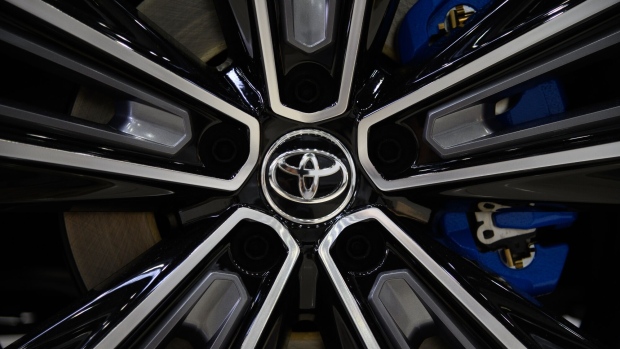Jul 5, 2024
Toyota Unit Violated Subcontract Payment Law, Says Japan FTC
, Bloomberg News

(Bloomberg) -- A Toyota Motor Corp. subsidiary was found to have violated Japan’s law protecting subcontractors, amid a government push to promote better treatment of small companies that wield little bargaining power over their bigger clients.
Yokohama-based Toyota Customizing & Development Co. (TCD) broke the law by having dozens of suppliers store metal die casts and other items without paying any storage fees, the Japan Fair Trade Commission announced in a statement Friday.
The FTC also said TCD forced 65 suppliers to accept returns on products, saying they’re defective, although it hadn’t actually inspected the items. The total costs came to around ¥54 million ($336,100), and TCD reimbursed its suppliers last month, FTC said, adding that the company will also pay back storage costs to those affected.
The move comes as the government is trying to improve the way suppliers are treated by big manufacturers so that they can boost wages and get more consumers spending. One of the bottlenecks hindering the country’s economic growth, economists and officials say, has been that small companies are being squeezed by rising import costs and pressure from big clients to maintain low prices.
Japanese authorities have also clamped down on governance issues at Toyota since probes uncovered faulty vehicle safety certifications at a pair of its subsidiaries, and more recently at the carmaker itself. The series of scandals have hurt Toyota’s reputation even as it manufactured and sold a record number of passenger vehicles in 2023, beating Volkswagen AG to hold the title of the world’s biggest carmaker for a fourth straight year.
Nissan Motor Co. was also cautioned by the FTC for illegally lowering what it was paying certain suppliers, which drew heavy coverage from domestic media and put pressure on the country’s automobile industry to collectively formalize preventative measures.
Metal die casts are commonly used to mass produce components for vehicles. The government’s trade ministry, in a 2019 report, previously said the storage of such parts should be paid for by the client. Industry bodies including the Japan Automobile Manufacturers Association have tried to disseminate the report, but the FTC’s actions against Sanden Corp. and a unit of Nidec Corp. suggest these issues remain widespread.
TCD has manufactured and sold ambulances and other specialized vehicles in and outside of Japan since it was founded in 2018, according to its website. It was also involved in developing technology for Toyota, which holds 90.5% of TCD’s shares, the rest being held by Toyota Tsusho Corp.
Toyota shares fell 2.1% on Friday.
(Changes headline, adds context and details on regulator’s announcement)
©2024 Bloomberg L.P.

